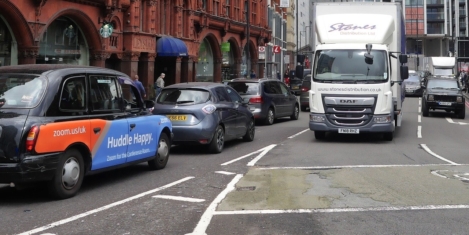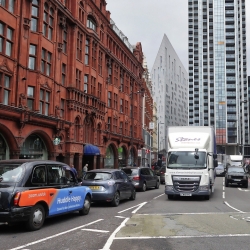February 19, 2020
Employees use only fraction of their knowledge at work
 Employees use just 38 percent of their knowledge and expertise at work, meaning organisations are failing to unlock even half of the brainpower of their people, research has claimed. According to the survey of more than 1,000 UK and US “knowledge workers” by Starmind, 90 percent of employees want more opportunities to share knowledge and expertise and three quarters believe their organisation would benefit from accessing more of their expertise. More than 6 in 10 respondents feel they could contribute more but don’t know how, while nearly two-thirds say they have knowledge their organisation isn’t aware of or doesn’t capitalise on. More →
Employees use just 38 percent of their knowledge and expertise at work, meaning organisations are failing to unlock even half of the brainpower of their people, research has claimed. According to the survey of more than 1,000 UK and US “knowledge workers” by Starmind, 90 percent of employees want more opportunities to share knowledge and expertise and three quarters believe their organisation would benefit from accessing more of their expertise. More than 6 in 10 respondents feel they could contribute more but don’t know how, while nearly two-thirds say they have knowledge their organisation isn’t aware of or doesn’t capitalise on. More →






 Global spending on smart cities initiatives will total about $124 billion this year, an increase of nearly a fifth on 2019, a new
Global spending on smart cities initiatives will total about $124 billion this year, an increase of nearly a fifth on 2019, a new 
 Eastern European businesses have benefited overall from EU membership but, for local firms, the promise of joining does not always live up to expectation or improve productivity, a
Eastern European businesses have benefited overall from EU membership but, for local firms, the promise of joining does not always live up to expectation or improve productivity, a 
 The public sector must uphold high standards of conduct when adopting AI, a
The public sector must uphold high standards of conduct when adopting AI, a 
 Freelancers value the freedom and flexibility of being their own boss but their happiness is most closely correlated with how much money they earn, a survey of 7,000 freelancers has claimed. According to the
Freelancers value the freedom and flexibility of being their own boss but their happiness is most closely correlated with how much money they earn, a survey of 7,000 freelancers has claimed. According to the 
 Two surveys have highlighted continuing fears among freelancers about the changes to the IR35 rules due to take effect in April. The reforms will shift the responsibility for defining contractors’ tax status from the individual to the employer to crack down on so-called ‘disguised employment’, where off-payroll workers are able to pay less tax than employees. However, concerns have been raised that the rules could force organisations to bring genuine contractors and freelancers on to the payroll, reducing flexibility for both parties.
Two surveys have highlighted continuing fears among freelancers about the changes to the IR35 rules due to take effect in April. The reforms will shift the responsibility for defining contractors’ tax status from the individual to the employer to crack down on so-called ‘disguised employment’, where off-payroll workers are able to pay less tax than employees. However, concerns have been raised that the rules could force organisations to bring genuine contractors and freelancers on to the payroll, reducing flexibility for both parties. 
 Executives in small and mid-sized businesses in the UK are more anxious about major decisions at work than critical decisions at home that affect their family, a new study has claimed. The new study by
Executives in small and mid-sized businesses in the UK are more anxious about major decisions at work than critical decisions at home that affect their family, a new study has claimed. The new study by 




 Outdoor workers in the capital are exposed to 15 percent more pollution than the average Londoner, new
Outdoor workers in the capital are exposed to 15 percent more pollution than the average Londoner, new 











February 12, 2020
Workplace leaders must adapt to a new technological reality
by Brian Kropp • Comment, Technology, Workplace